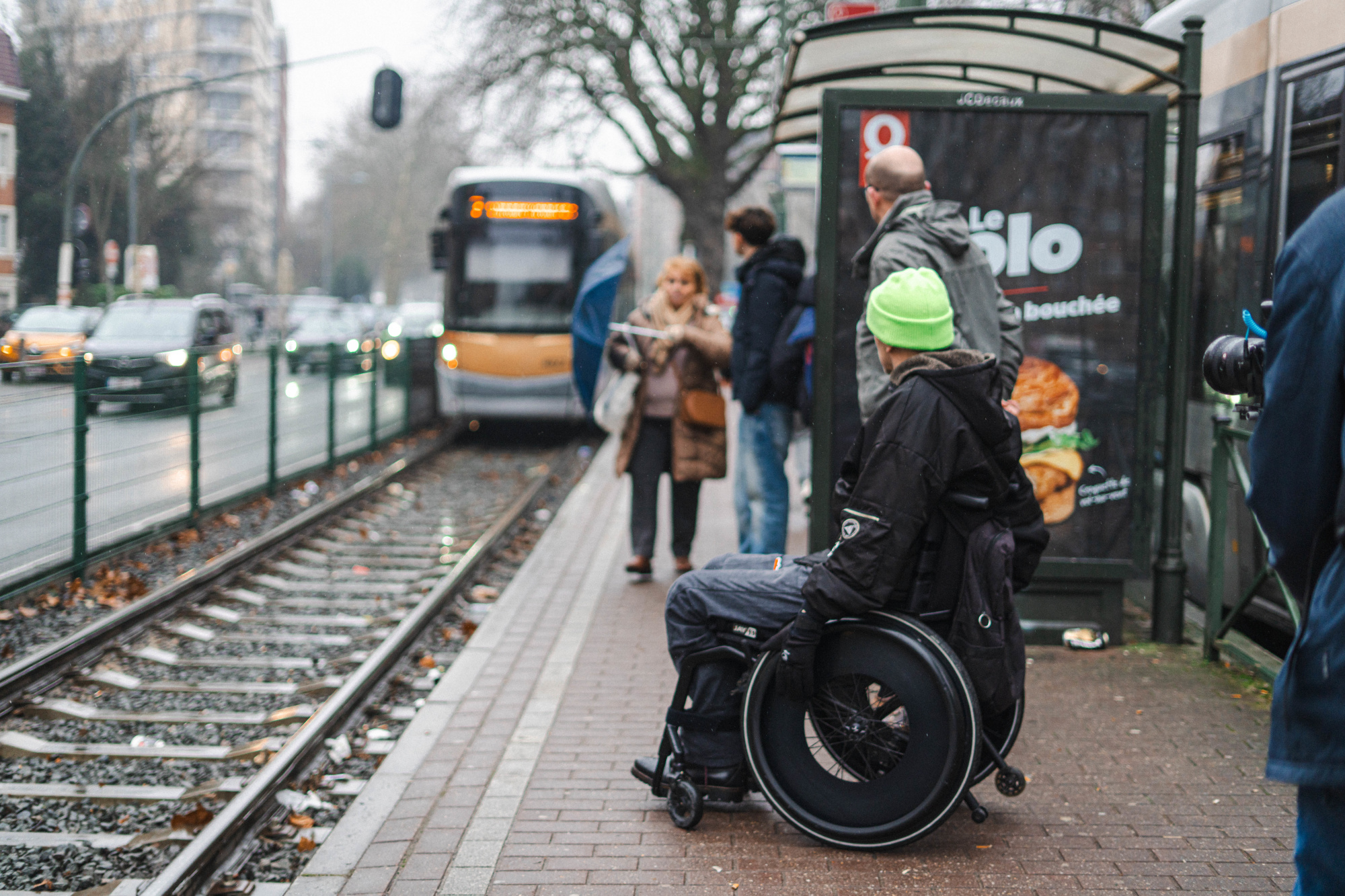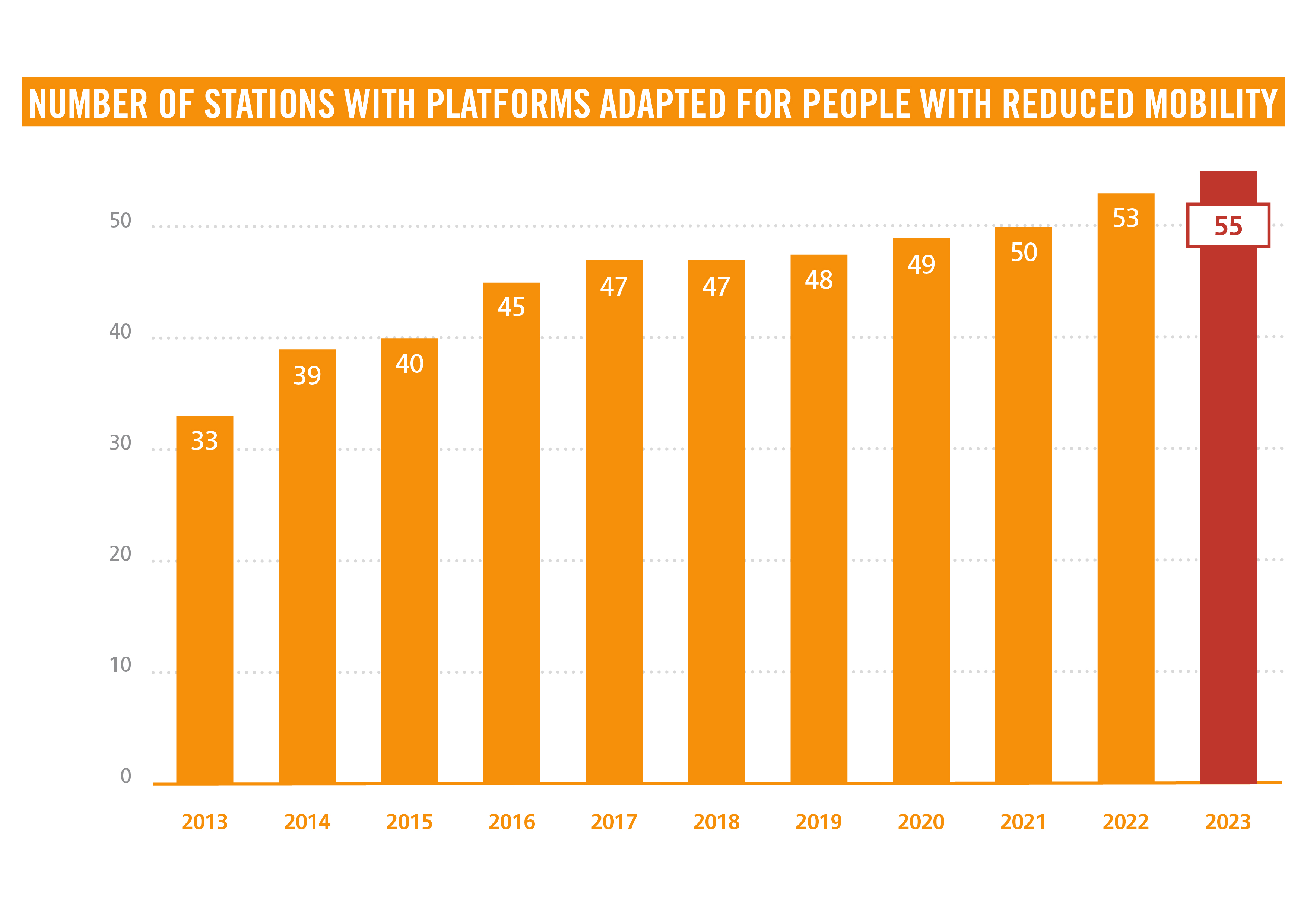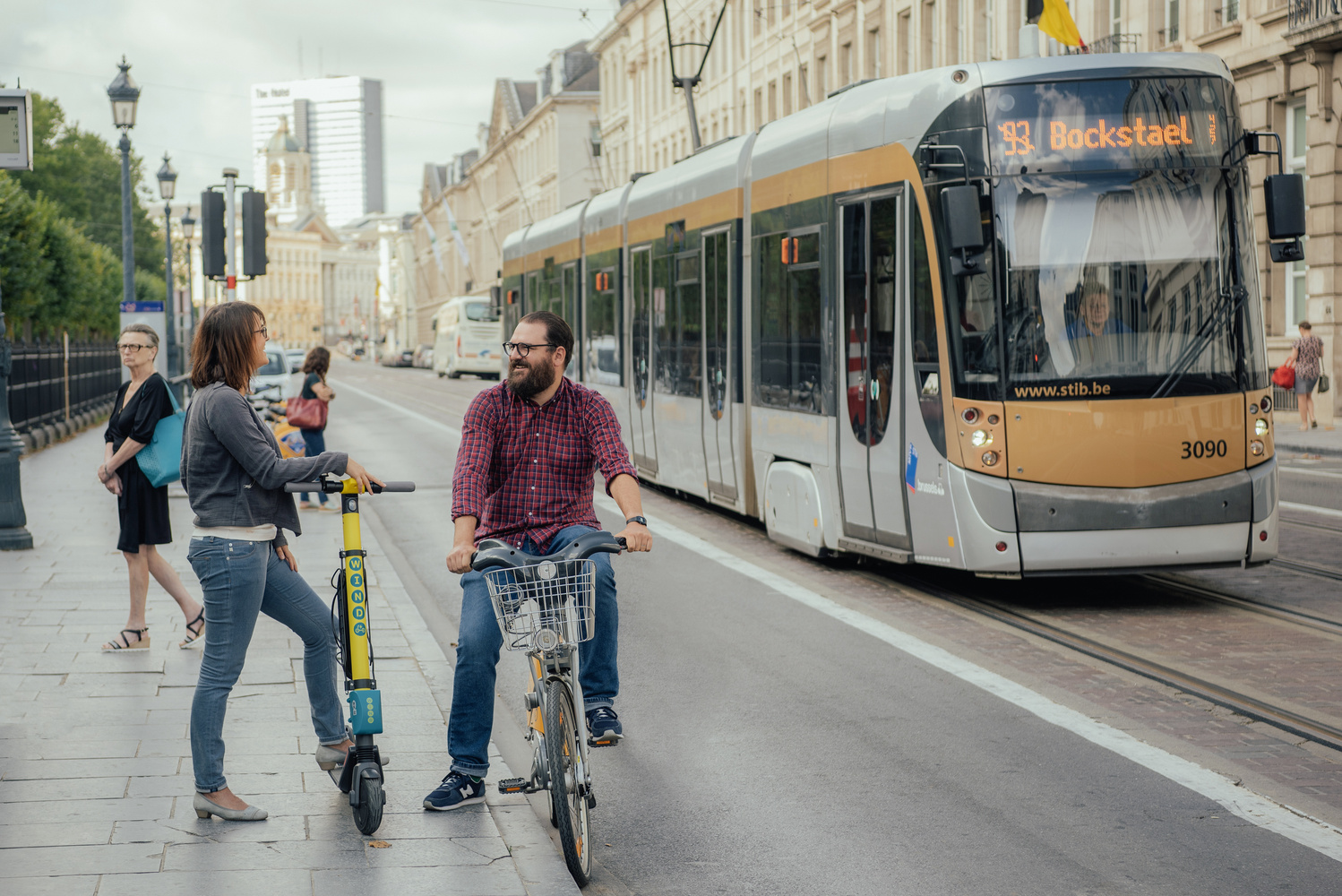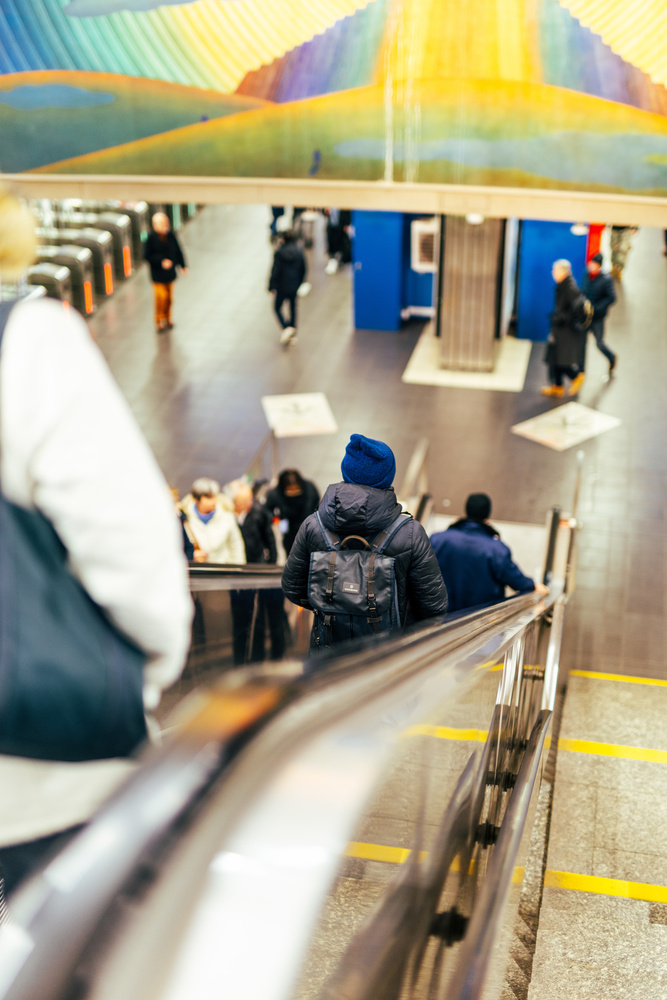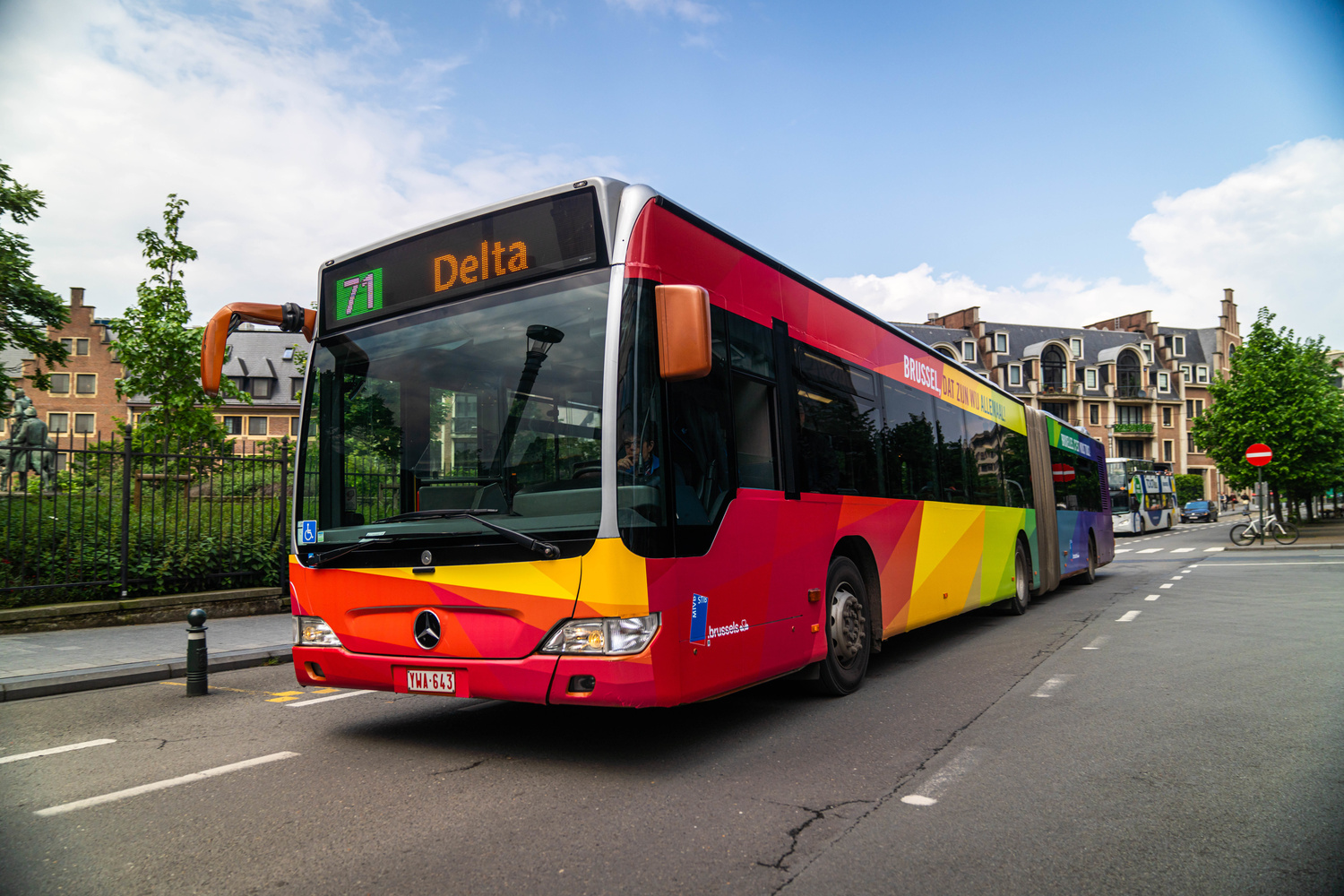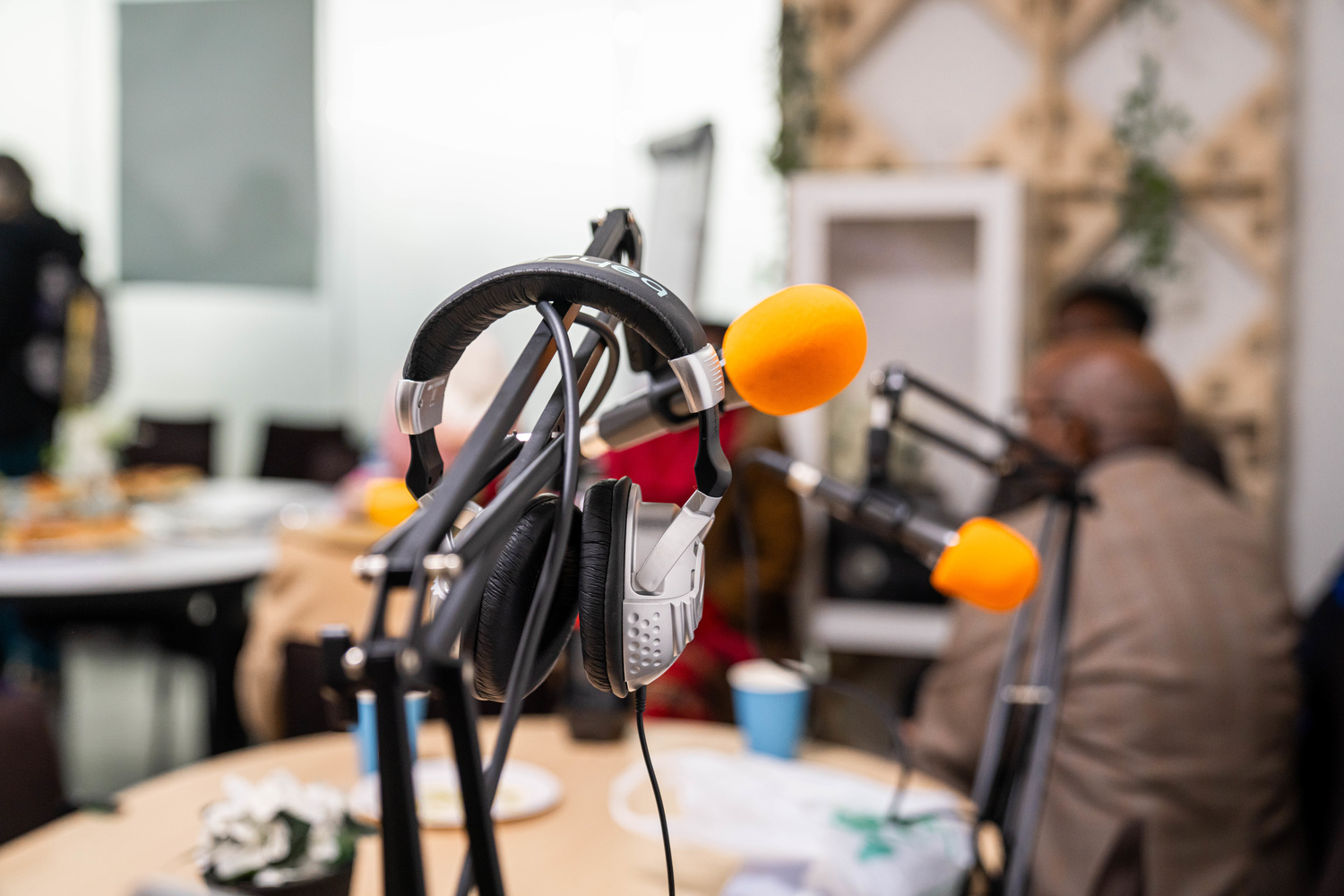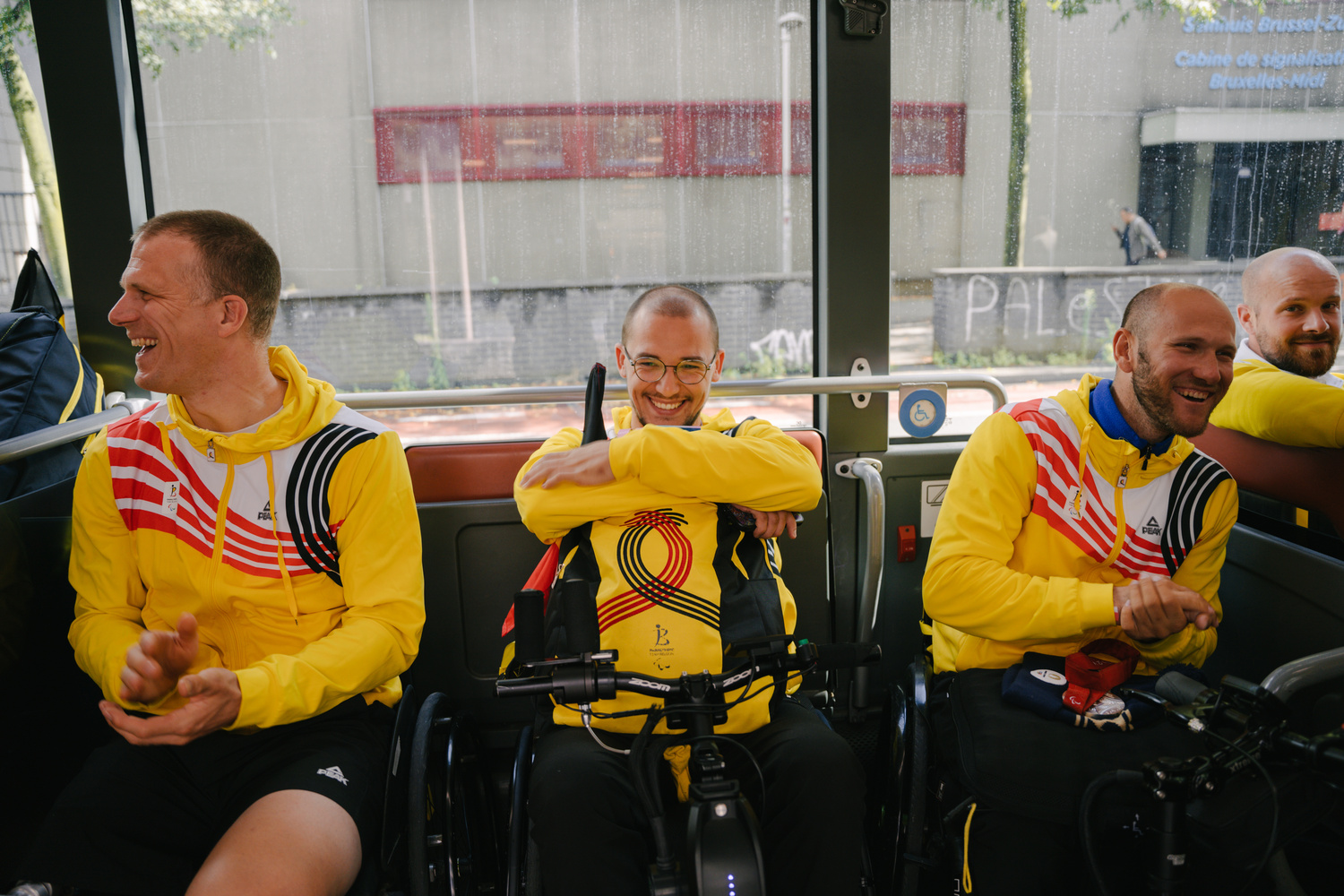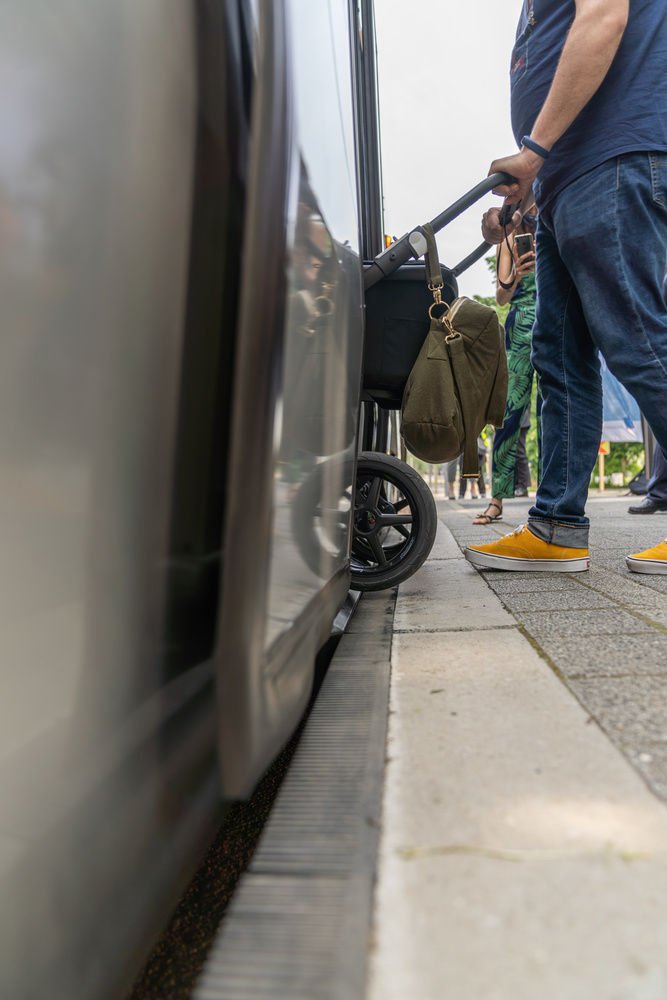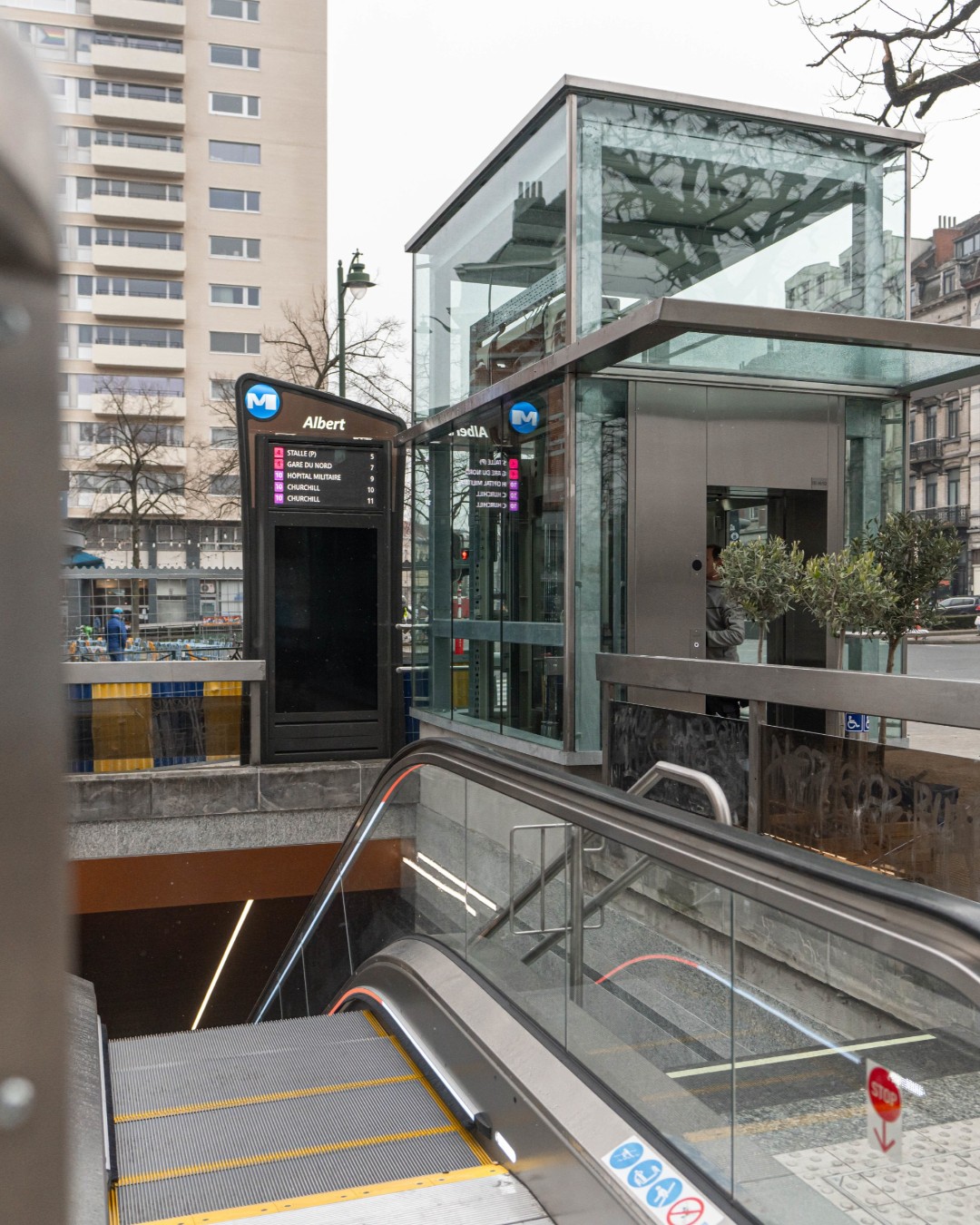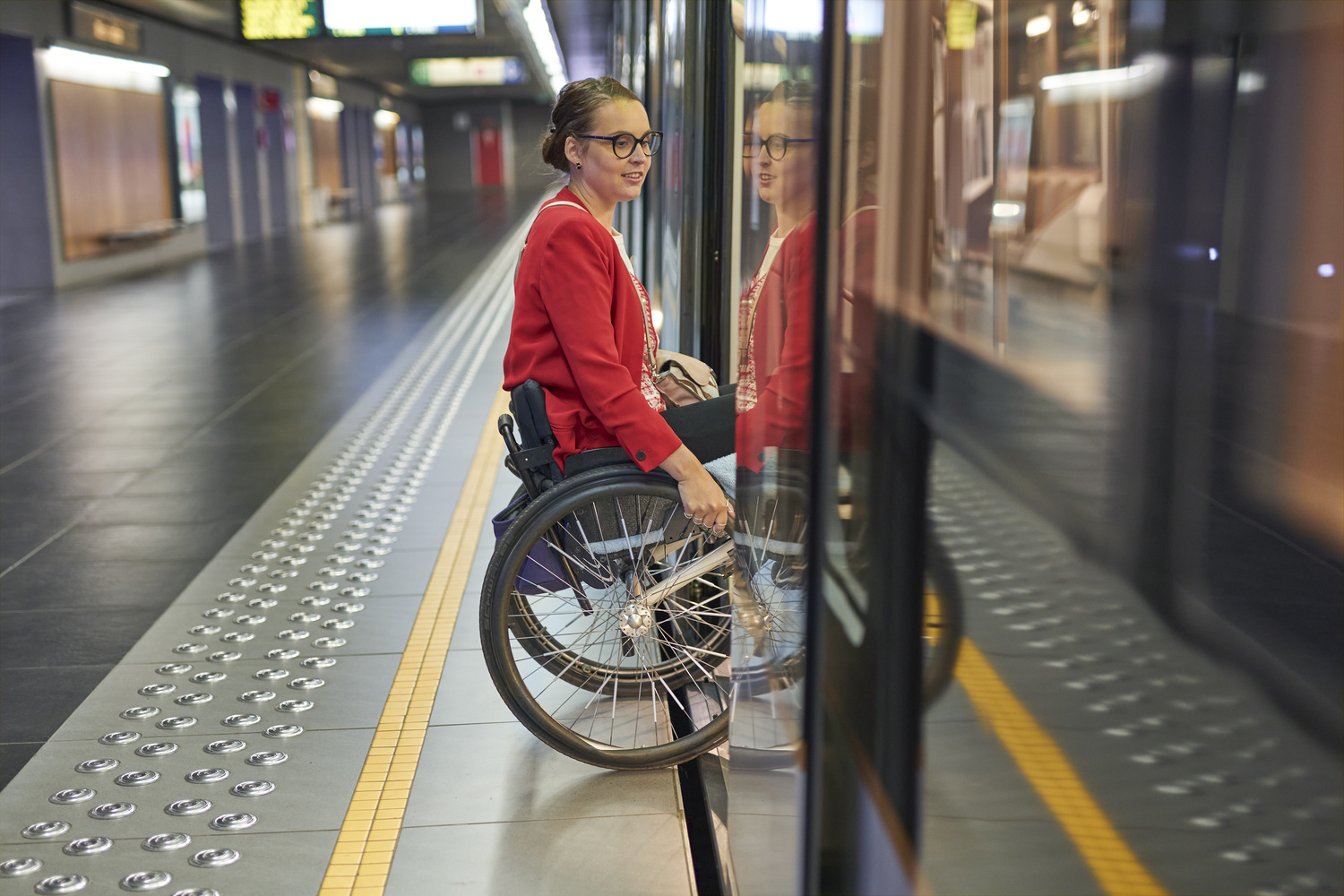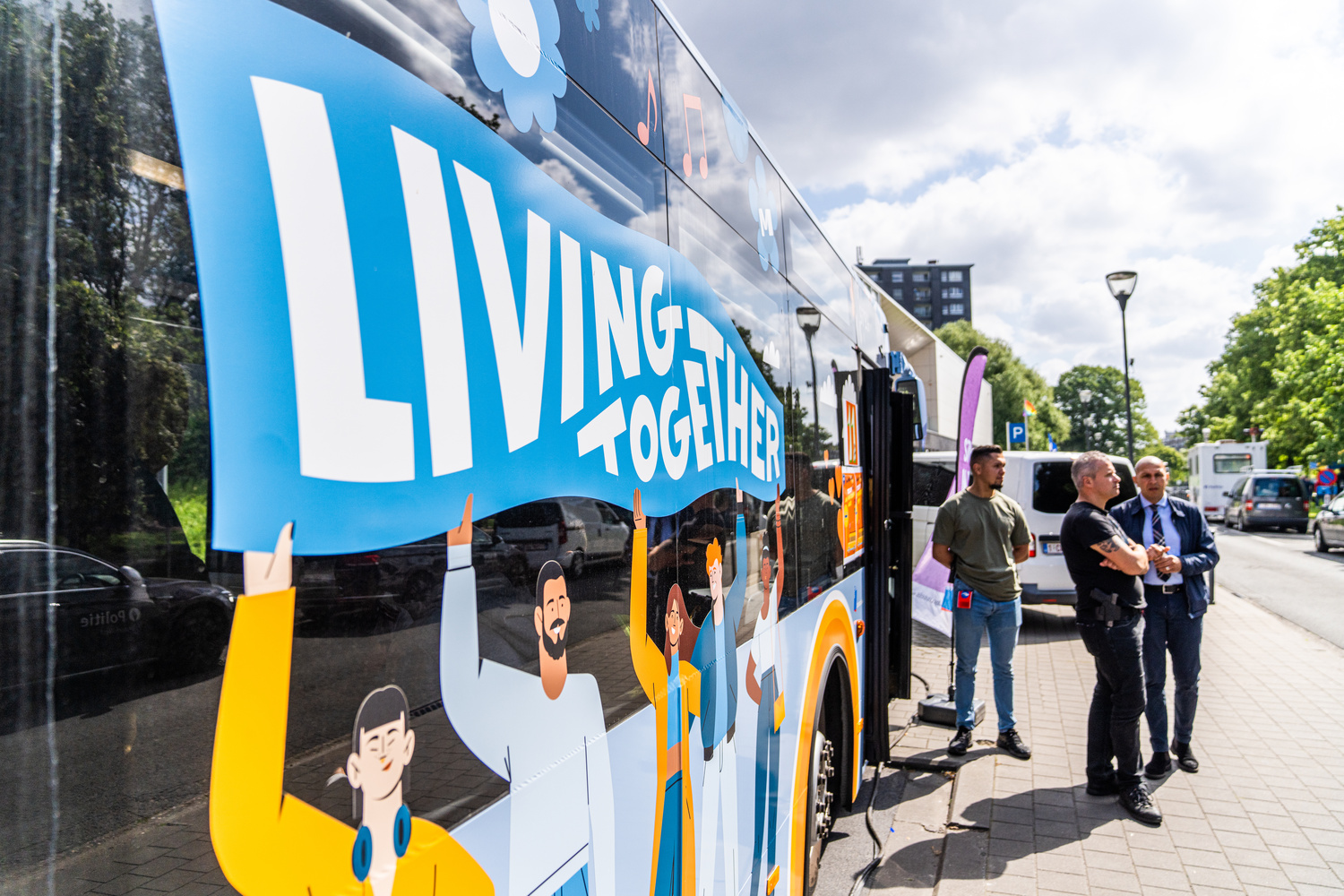Responsibilities
STIB contributes substantially to the sustainable development objectives of the Brussels-Capital Region from an economic, social and environmental point of view. STIB's societal role is illustrated by its economical, efficient and humane management of the resources at its disposal, a commitment to inclusion and an active contribution to climate issues, not only through its mission to operate a public transport network, but also as an industrial company committed to minimising the carbon footprint of its activities.
